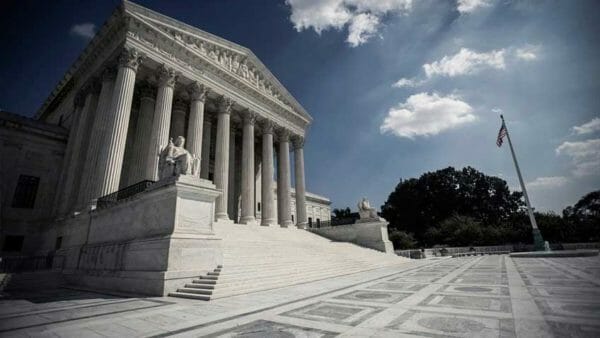Opinion

Arizona -(Ammoland.com)- The Supreme Court has deferred making a decision on the issue of mootness in the New York State Rifle and Pistol Association v. New York City yesterday morning, 7 October, 2019. The Court will hear oral arguments on 2 December, 2019, eight weeks from now. From supremecourt.gov:
The Respondent’s Suggestion of Mootness is denied. The question of mootness will be subject to further consideration at oral argument, and the parties should be prepared to discuss it.
The NYSR&P case is the first major Second Amendment case the Court has agreed to hear in nine years. There have been a couple of cases around the edges, and Caetano was significant. But there has not been a case to rein in the flood of lower court rulings that, in effect, made the Second Amendment into a second class right.
Those rulings, in effect, hold there is no right to commercial or private sale of arms; that common rifles can be banned; that magazines can be banned, that accessories can be banned, and the types of firearms can be banned to a designated number of models.
Four justices on the court have been unhappy with the results, notably Clarence Thomas, Antony Scalia before he died, Neil Gorsuch, and Brett Kavanaugh. It is not clear where Chief Justice Roberts or Justice Alito stand.
Four justices; Ginsburg, Sotomeyer, Breyer, and Kagan, have been hostile to the Second Amendment.
The Caetano decision was a unanimous decision that clarified the Second Amendment applied to all bearable arms, even if they had been invented recently.
Many have speculated that Justice Kennedy’s lukewarm support for the Second Amendment was the reason for this lack of action. Neither the Originalists (Thomas, Scalia, Alito, and Roberts) or the “Living Document” group (Ginsburg, Sotomeyer, Breyer, and Kagan) knew which way Kennedy would topple, leading to a deadlock.
Justice Kennedy has retired, replaced by Justice Kavanaugh. Justice Scalia died, and was replaced by Justice Gorsuch.
The new court appears to have an Originalist majority for the first time in 70 years.
The court has agreed to hear the NYSR&P case. They have refused to drop it on grounds of mootness. The case is about the ability to take arms outside of the home, but could cover a great deal more.
Several other cases are in the wings involving magazines, semi-automatic rifles, and licensed “may issue” carry permits.
Those who wish us disarmed are not happy with this result. They thought they had solved the problem with the election of Hillary Clinton, who would appoint more “Living Document” justices, and rule the Second Amendment into oblivion.
That did not happen. We see the frustration, the angst, the anger and rage, every day, directed at President Trump.
After oral arguments are heard on 2 December 2019, it will be some time before the opinion is released. It could be as late as the first week in July, 2020.
I suspect a strong opinion, but the court is not easily predicted. Much horsetrading is involved. That is how the Heller decision contained the ambivalent language about “long standing” laws, according to deceased Justice Stevens, who detested the Second Amendment. From the abajournal.com:
Stevens previously has called for repeal of the Second Amendment or a clarification saying it applies only to people serving in militias.
In the book, Stevens said he had hoped to persuade Justices Anthony M. Kennedy and Clarence Thomas to agree with him that the amendment was intended to prevent the disarmament of state militias. He circulated his dissent emphasizing historical texts supporting his view in hopes it would prove persuasive.
His only success, he said, was in getting Kennedy to persuade Justice Antonin Scalia to include language limiting the reach of his majority decision in Heller.
With activist “living document” justices such as Stevens on the Court, it is understandable why the National Rifle Association was opposed to bringing Heller to the Court at all.
That is in the past. How much current justices will uphold the clear language of the Second Amendment, in NYSP&RA will be found when they publish the decision, several months in the future, just in time for the 2020 elections.
About Dean Weingarten:
Dean Weingarten has been a peace officer, a military officer, was on the University of Wisconsin Pistol Team for four years, and was first certified to teach firearms safety in 1973. He taught the Arizona concealed carry course for fifteen years until the goal of constitutional carry was attained. He has degrees in meteorology and mining engineering, and recently retired from the Department of Defense after a 30-year career in Army Research, Development, Testing, and Evaluation.
